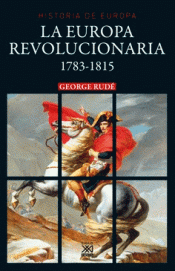Para envío
La multitud en la historia marcó un hito historiográfico. Por un lado, inauguró lo que desde entonces se conocería como ?historia desde abajo?, intentando recuperar el pasado de los sectores populares desde una perspectiva que incluía la propia subjetividad de los actores. Por otro, la incorporación de las percepciones de individuos y grupos en la explicación histórica supuso un tránsito entre la historia social y la historia cultural, corriente que ha dado destacados y continuados frutos. Casi medio siglo después de su aparición, este trabajo sigue interpelándonos porque como señala Miguel Ángel Cabrera en el prólogo de la presente edición se trata de «una obra abierta (?) que invita a la rectificación y la renovación (?) como si no aspirara a ser más que un esbozo inicial (?). (Por ello) sigue rezumando frescura intelectual y su lectura nos sigue resultando historiográficamente estimulante e inspiradora».
Clásicos para el siglo XXI es un conjunto de textos reeditados a partir del fondo bibliográfico de Siglo XXI España y reunidos con la idea de familiarizar al lector con las convenciones modernas sobre el pasado y sus maneras de conocerlo. Son piezas clásicas en la medida que circularon como modelos universales que emular, como ejemplos de la «manera apropiada de investigar el pasado y manejar el presente. La colección no aspira sin embargo a recuperarlos como referentes atemporales, sino como marcas historizadas de recreación de lo real. Y es que, a través del diálogo entre viejos autores y nuevos prologuistas, Clásicos para el siglo XXI invita a buscar el «tiempo perdido» de unas obras que son iconos de los cambios ontológicos, epistemológicos y metodológicos experimentados durante las últimas décadas en la creación y comunicación del conocimiento histórico.



